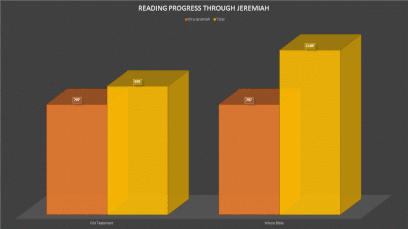Week Thirty-Five Reading Assignment:
Jeremiah 38 - Ezekiel 3
"In most parts of the Bible everything is implicitly or explicitly introduced with 'Thus saith the Lord'. It is, if you like to put it that way, not merely a sacred book but a book so remorselessly and continuously sacred that it does not invite, it excludes or repels, the merely aesthetic approach... It demands incessantly to be taken on its own terms."
(C.S. Lewis)
(C.S. Lewis)
